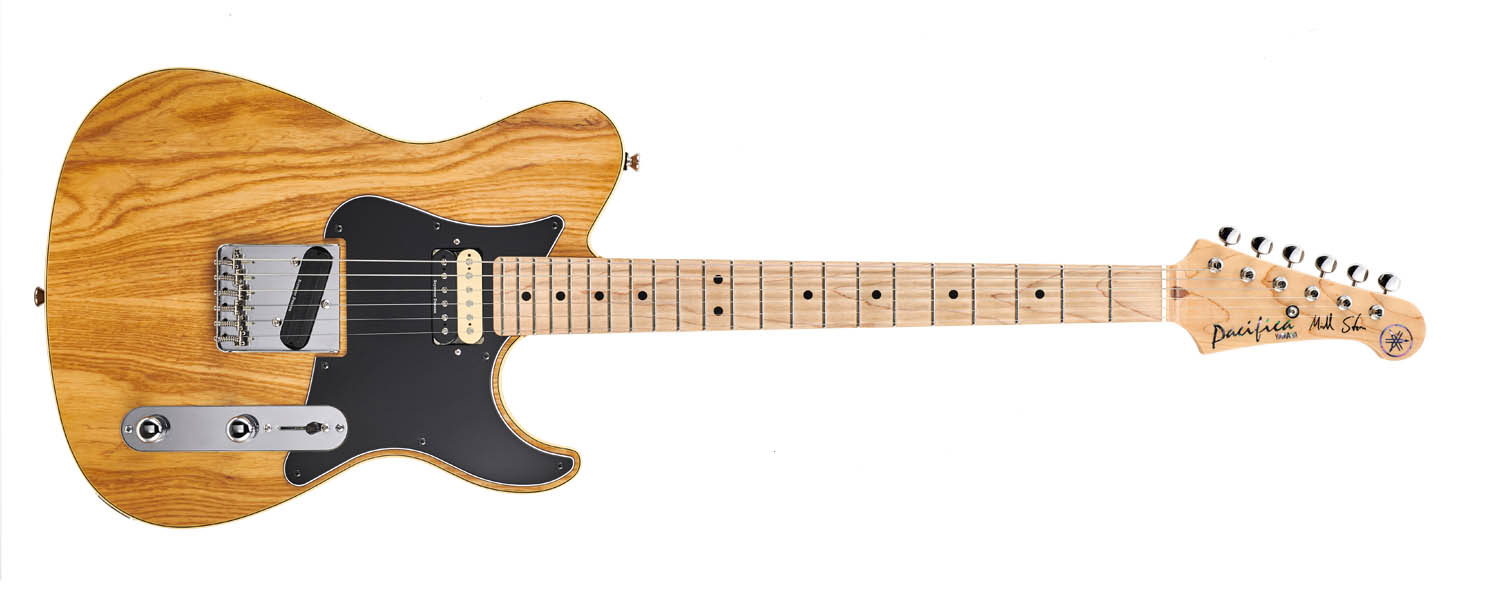MusicRadar Verdict
The Yamaha Pacifica 1611MS is deserving of a much higher profile. It is an exceptional instrument that balances the vintage appeal of a T-style with a functionality that makes it fit for all kinds of styles.
Pros
- +
Nice, clean and simple design.
- +
Versatility is incredible.
- +
Weight and balance are spot on.
- +
Immaculately finished.
Cons
- -
No case included.
- -
No colour options.
MusicRadar's got your back
What is it?
Over the years, Yamaha has built and designed a number of impressive electric guitars but only ever one signature model, the Yamaha Pacifica 1611MS.
Originally launched in 1998 – then under the designation 1511MS – the 1611MS truly is a one-off for the company and something of a head-scratcher. Why is no one shouting about this guitar more often? Built for Grammy-nominated jazz guitarist Mike Stern, it regularly gets overlooked in "Best ..." lists and for no good reason.
It truly is a one-off. It's Yamaha's only single cut, comprising a lightweight ash body, a bolt-on maple neck and maple 'board – all cut from the one piece of maple, with no separate slab for the fretboard.
In size and proportions, it is very much the T-style, albeit with a slightly shallower body at 44.5mm, with a little binding and a sharper, deeper cutaway on the treble horn. There's the truss rod adjuster buried under the 'guard, the skunk stripe on the back of the neck. There is a hint of the offset about it, too.
The feel is old-school Telecaster, with a 7.25-inch radius fingerboard quite a radically different proposition to the flatter 'boards of the other Pacificas we've played and loved
The feel is old-school Telecaster, with a 7.25-inch radius fingerboard quite a radically different proposition to the flatter 'boards of the other Pacificas we've played and loved. But then, those Strat-esque Pacificas are very different beasts.
Elsewhere, we've got an ashtray-style bridge plate housing a string-through-body six-saddle bridge – a welcome departure from the three-saddle setup, or so says the stickler for intonation.
And while the T-style control setup is similar – three-way selector, volume, tone, we've got a hot-rod pickup pairing of a Seymour Duncan HotRails single coil-sized humbucker in the bridge and a zebra ’59 standard-sized humbucker in the neck.
Want all the hottest music and gear news, reviews, deals, features and more, direct to your inbox? Sign up here.
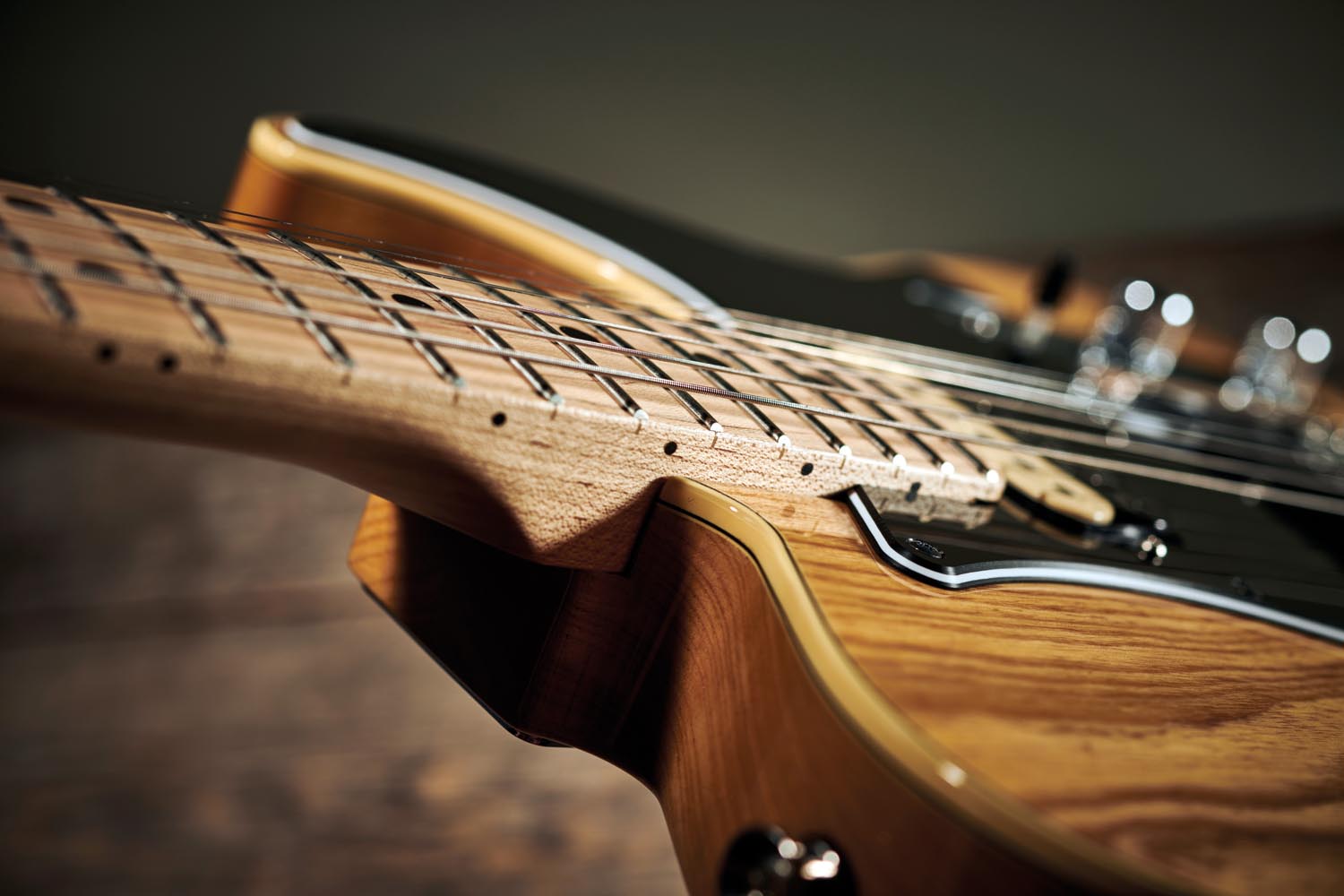
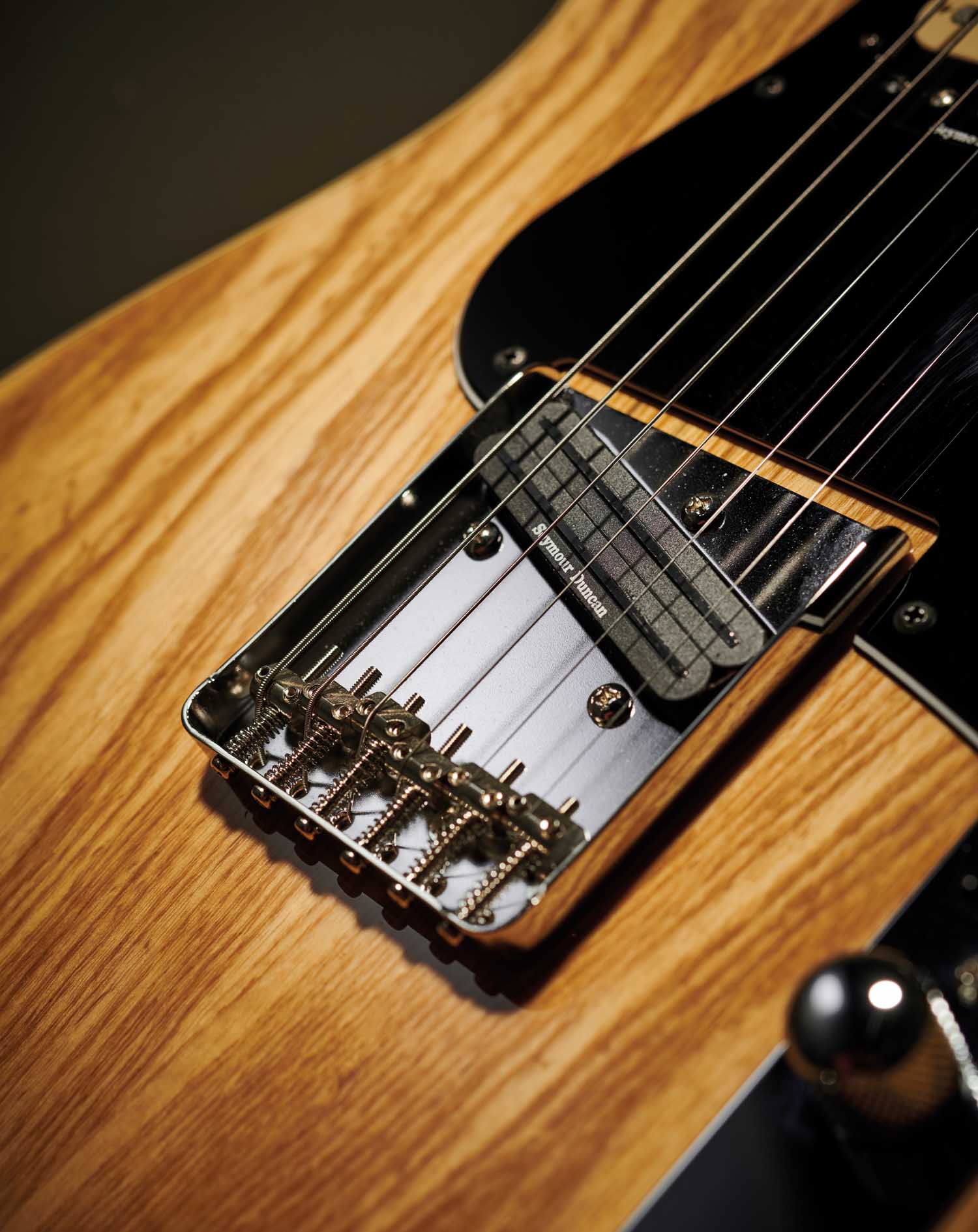
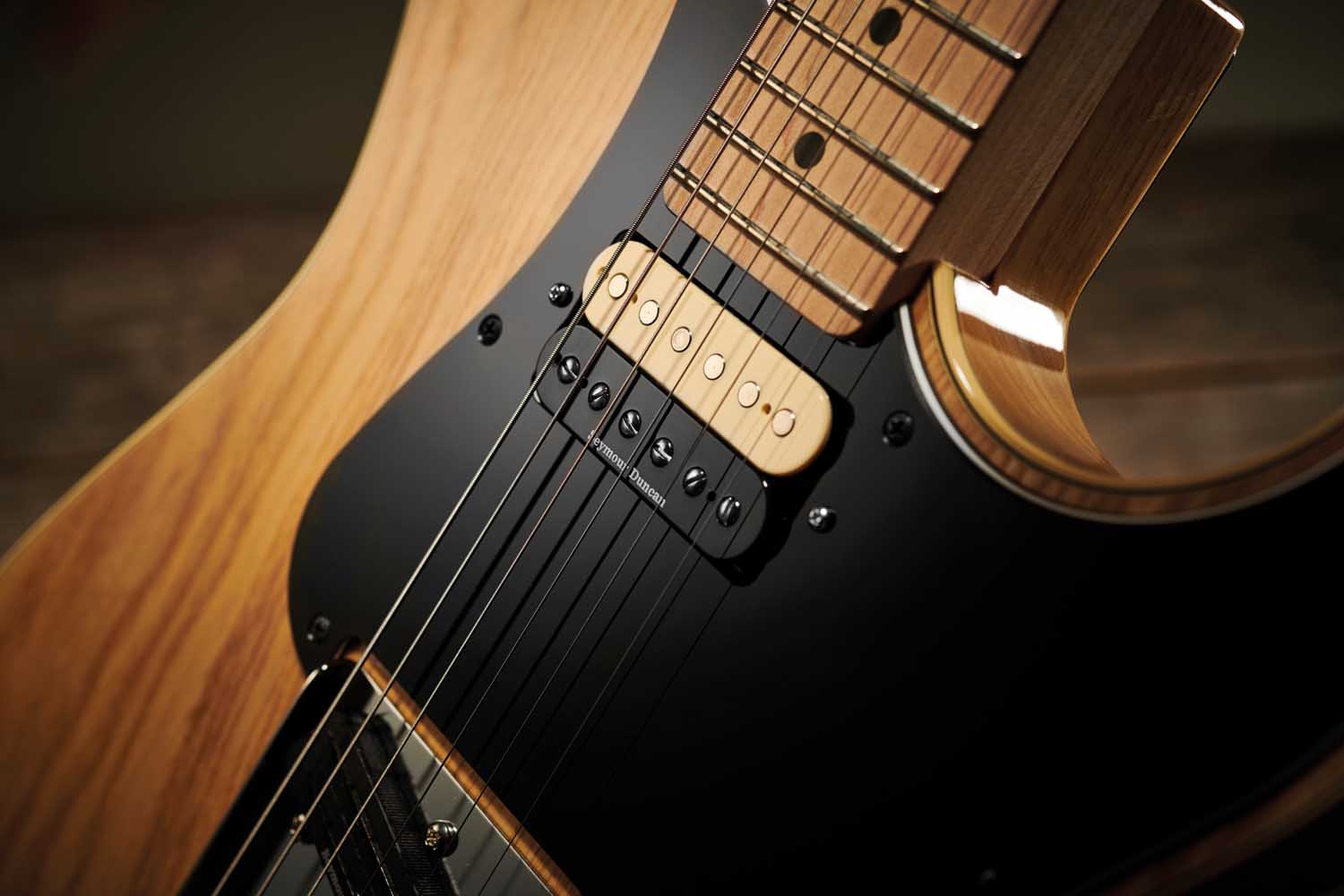
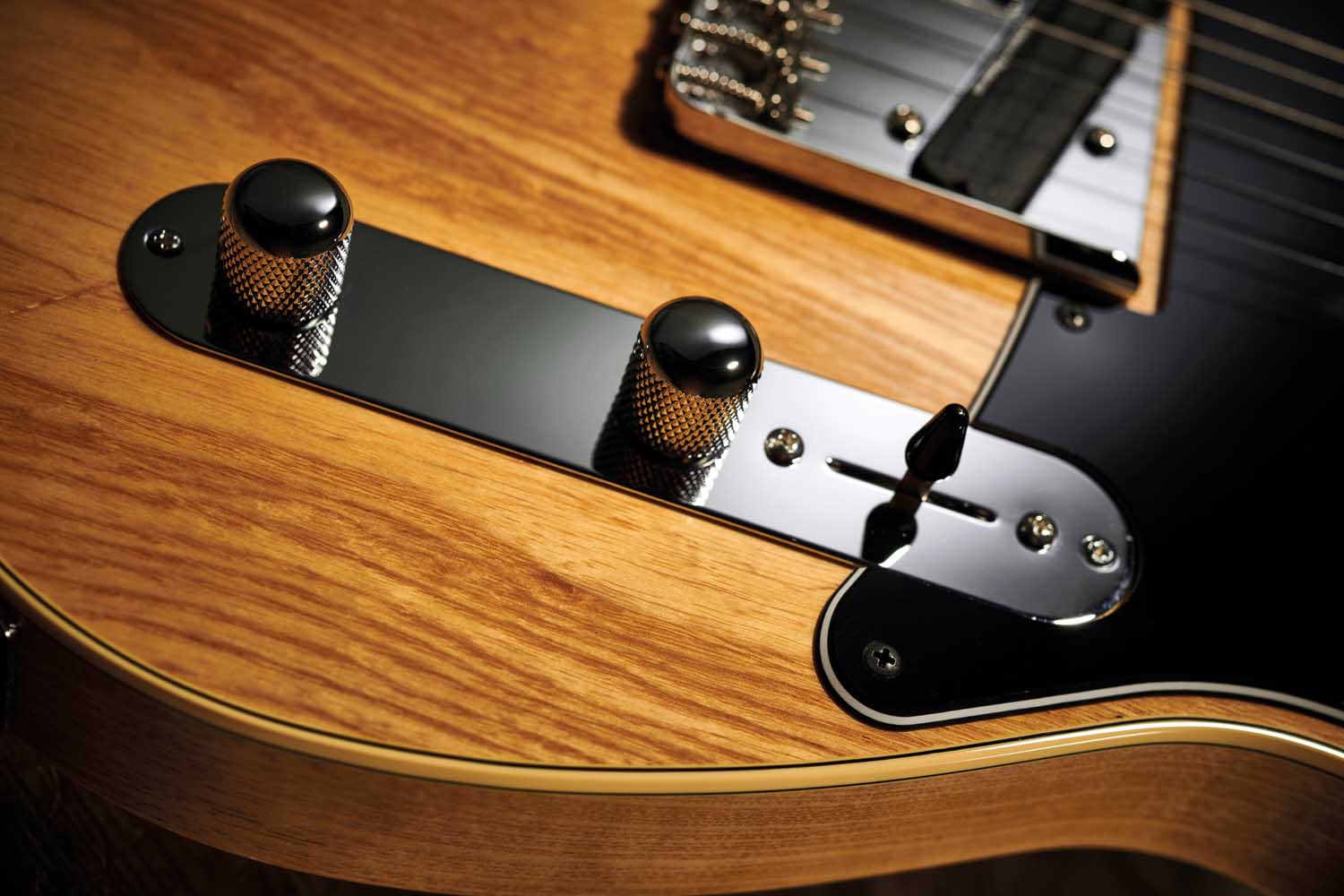
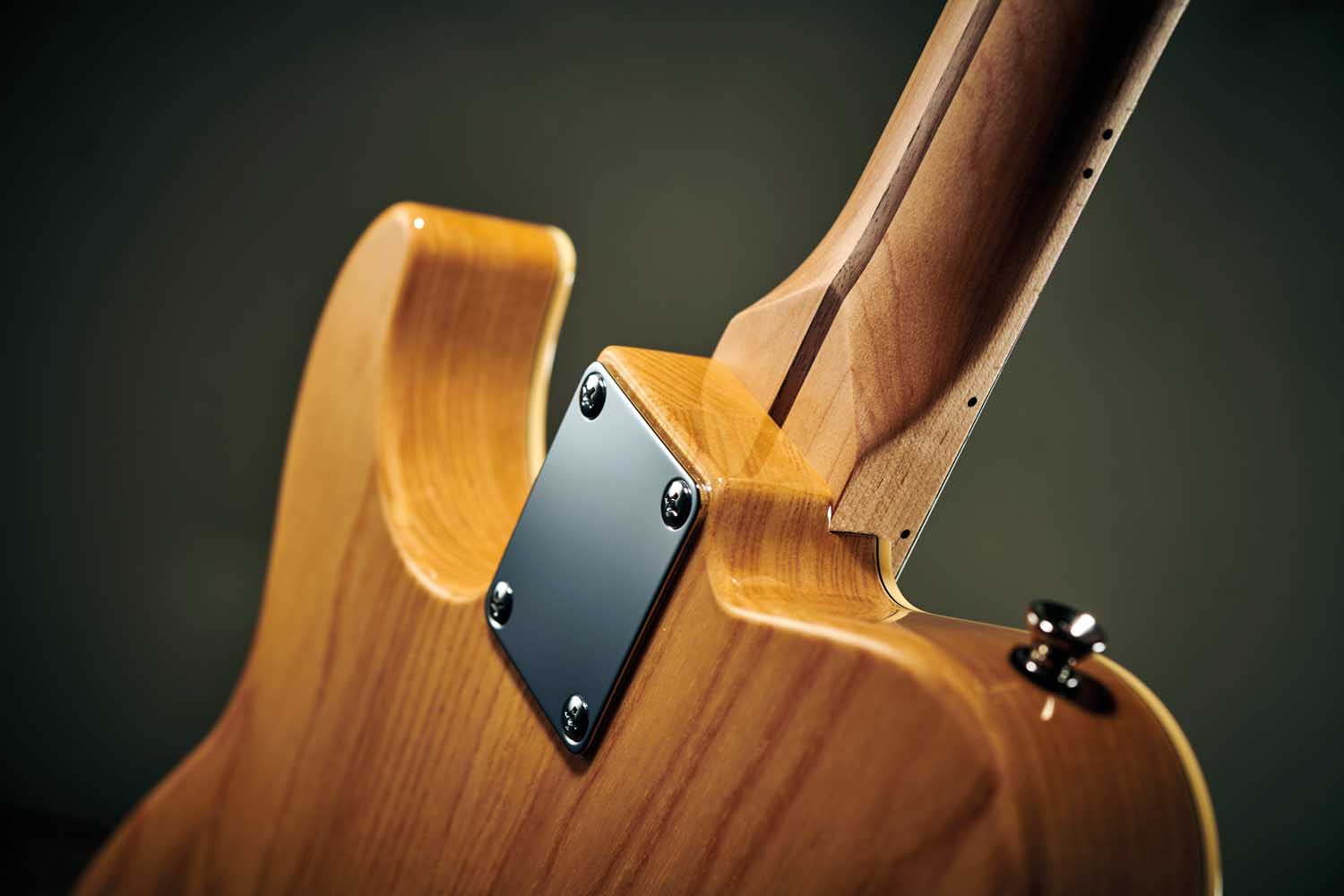
Performance and verdict
The vibe of the 1611MS is eerily vintage. The fingerboard is oil-finished and will require a bit of love. It'll wear in well. The block heel is usually dispensed off in these modern reinterpretations but it stays here. It's no real barrier to the upper-frets anyway, as the lower cutaway is that bit deeper.
As far as weight goes, at 6.6lbs, the 1611MS is very kind to the back. The neck shape is interesting. It's a C-profile, 21.5mm at the first fret, tapering out to 23.2 at the 12th. That feels a little more modern, and certainly there no notes were choking out when bending further up the neck.
If the T-style illusion is building, it's dispensed a little when we plug in. The pickup choice transforms the 1611MS, and even during the usual throat-clearing open chords it presents itself as more Les Paul than Telecaster, with a thicker warmer voice that of course makes more sense if you are intending on playing jazz.
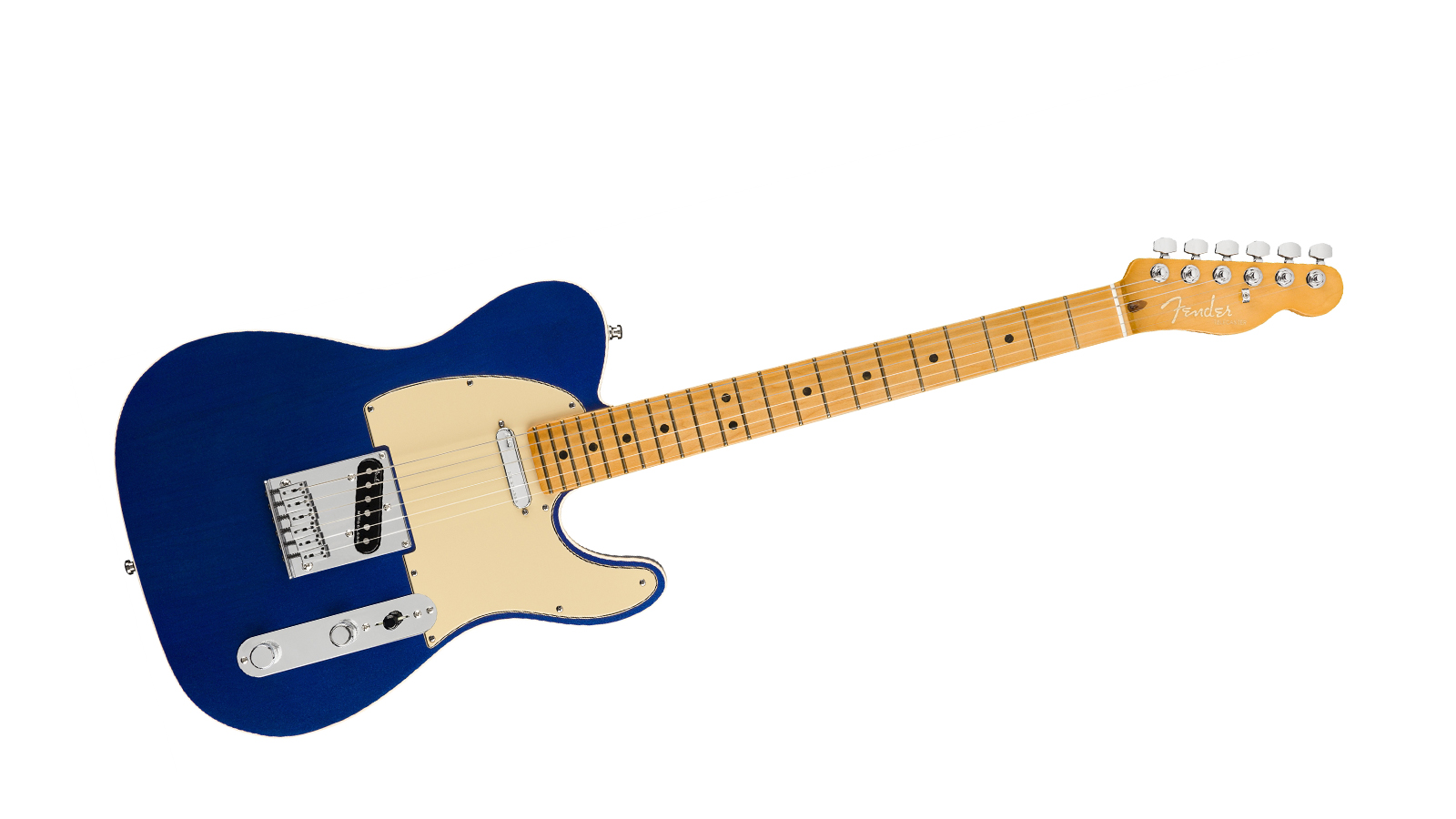
• Fender American Ultra Telecaster
A neck heel that disappears, hum-free pickups and well-voiced control circuits means that there’s very little to get in the way of creating the music you want to make.
• Yamaha Revstar RS820CR
It’s very Les Paul-like, with thickness and balance; it’s powerful but not over-hot, and an easy drive to capture some fruity classic rock, or more contemporary gained voices.
On the bridge pickup, much of the sharp edges of a Tele's treble is planed off, replaced by the extra oomph and width of a humbucker. The detail and clarity is still exceptional. On the neck, there is jazz tones on tap, but you can easily dial in some great neck lead tones, nuanced, and vocal.
In the middle position, with both pickups pressed into service, there is so much territory to explore, only supporting our suspicions that, while this might have been built with a jazz player in mind, this is a guitar for all seasons.
It's crazy to think that this has been kicking around for 22 years now, having been subtly refreshed in 2016 with Yamaha's IRA (Initial Response Acceleration) technology, which “shakes off the stress often found in new guitars and makes them extremely vibrant and responsive”.
There is no one style that recommends itself to the 1611MS. From its simple, classic build to clever pickup choice, it's a sumptuous T-style with humbuckers that invites the explorative player to find their own voice.
In turn, we'd encourage Yamaha to find theirs and shout a little more loudly about this model. It deserves to be celebrated; it deserves to be played more.
MusicRadar verdict: The Yamaha Pacifica 1611MS is deserving of a much higher profile. It is an exceptional instrument that balances the vintage appeal of a T-style with a functionality that makes it fit for all kinds of styles.
Hands-on demos
The Music Zoo
Yamaha
Specifications
- ORIGIN: Japan
- TYPE: Single-cutaway solid-body electric
- BODY: Light ash
- NECK: Maple bolt-on
- SCALE LENGTH: 648mm (25.5”)
- NUT/WIDTH: Synthetic bone/40.53mm
- FINGERBOARD: Maple, black dot markers, 184mm (7.25”) radius
- FRETS: 22, medium jumbo
- HARDWARE: Hardtail 6-saddle bridge w/through-body stringing, vintage-style tuners – chrome/nickel-plated
- STRING SPACING, BRIDGE: 54mm
- ELECTRICS: Seymour Duncan Hot Rails single coil-sized humbucker (bridge) and zebra ’59 standard-sized humbucker (neck), 3-way lever pickup selector, master volume and tone
- WEIGHT (kg/lb): 3/6.6
- OPTIONS: None
- RANGE OPTIONS: It remains the only single-cutaway Pacifica in the Yamaha range. Other Japanese-made models include the Revstar RSP20CR (£1,496), the long-running SA2200 (£1,978) and the modern SG 1800 trio at £3,200 each
- LEFT-HANDERS: No
- FINISHES: Natural (as reviewed). High gloss body, oil-finished neck
- CONTACT: Yamaha
MusicRadar is the number one website for music-makers of all kinds, be they guitarists, drummers, keyboard players, DJs or producers...
- GEAR: We help musicians find the best gear with top-ranking gear round-ups and high-quality, authoritative reviews by a wide team of highly experienced experts.
- TIPS: We also provide tuition, from bite-sized tips to advanced work-outs and guidance from recognised musicians and stars.
- STARS: We talk to musicians and stars about their creative processes, and the nuts and bolts of their gear and technique. We give fans an insight into the craft of music-making that no other music website can.

